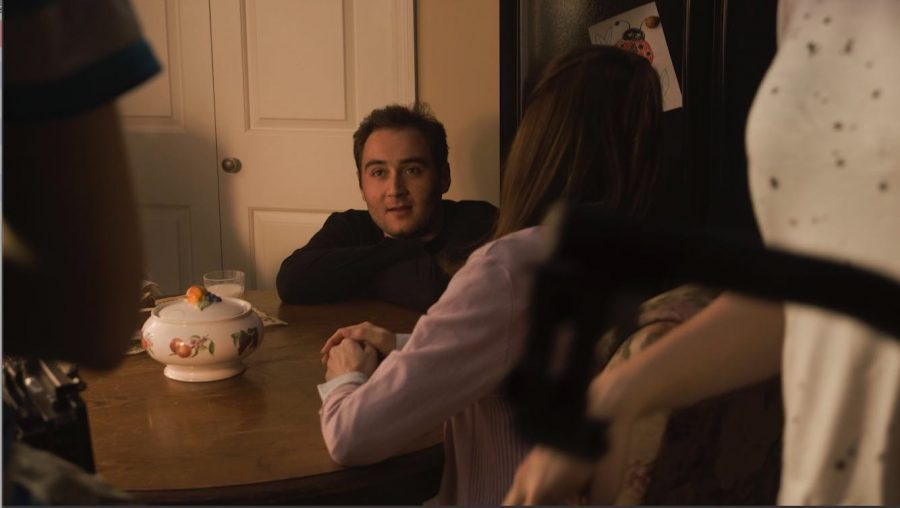“I think there’s a lot of beauty in sadness,” Maxx Evan said. The young director’s captivating yet melancholic film was recently selected to compete for the Battle of the Film Schools’ first 2020 screening.
Battle of the Film Schools is a short film competition that showcases the work of student filmmakers in New York. Evan’s film, “Under the Tree,” was one of two works selected to represent NYU in the competition. The nomination attests to the success of the film, but its true beauty lies in the amount of effort and attention to detail that went into the production process.
Evan is a writer and director who graduated from Tisch School of the Arts in 2018, where he double majored in Cinema Studies and Film Production. During his time at Tisch, Evan was involved in production and set design, but he ultimately wanted to direct.
“Under the Tree” was his thesis project. Inspired by the psychology classes he took, Evan decided to center his project on grief, parents and film. After pitching the idea, Evan and his team received a small grant that helped fund the project.
Set in suburban Albany, “Under the Tree” is an emotionally effective portrayal of untreated mental illness. It follows a woman as she grieves the unexpected loss of her young daughter and tries to come to terms with the reality of the situation. As the days pass, she falls in and out of memories, and the true story comes together piece by piece.
“Suddenly this movie was not about the woman’s condition, but how her world is tainted by what she’s gone through, what she’s dealing with and the illness she faces,” Evan said. “It was this jigsaw puzzle to figure out how to create a story, what informs it, how do we create an accurate, artistic, respectful depiction of a very misunderstood mental illness?”
Beautifully heartbreaking, the film demonstrates Evan’s skill and attention to detail, particularly the emphasis on psychologically accurate portrayals of mental illness.
“I wasn’t content with saying crazy, that’s a word that’s misconstrued, and it makes people look sick, and there’s more to it than that,” Evan said. “So I actually met with a lot of psychiatrists when I was writing the film because I wanted to get to the bottom of what this character had, how to define it in a way that wasn’t generic and crazy. It’s too easy to say that.”
Evan also brought his experience in set design to the film, making sure it was an integral part of the story. Because the film itself has very little dialogue, Evan and his team had to find innovative ways to tell the story and convey important messages. This was achieved through tiny, easily missed details that actually make all of the difference: objects strewn throughout the home as well as muted tones throughout the film.
“Every single thing was well thought out, every placement of every piece of furniture, every moment, every costume, every light, every soft breath of the camera was so well-thought-out,” Evan said.
Evan’s professionalism also comes through in the script. The portrayal of dead children, mourning parents and the permanence of loss called for a very dark and emotionally challenging script. Evan recalls how painful it was to create a world embedded with that level of sadness and the physical and psychological toll it took on him.
“There were days on set when it was very hard to watch,” Evan said. “It was very emotional, especially because the actors were so good, but I felt terrible putting them through these situations. But I have to remind myself that what I love about pushing the boundary with work like this is that I hope that people do react, and feel, and are moved by it.”
Despite the difficulty of intentionally writing people into unimaginably painful situations, Evan’s goal was to elicit an emotional response from the audience and help them understand the differences between the real world and the world as it is perceived by the damaged character. Though he understands the audience may view it through a subjective lens, he wanted people to sympathize with the character.
Evan efforts paid off. “Under the Tree” has been recognized in other film competitions including the Chandler International Film Festival, where it earned Evan the “Best Student Filmmaker” award.
Evan is currently working in film production, and he plans on applying the skills he has gained as well as the connections he has made to his future works.
“If there’s anything I learned it’s that there’s so many people that want to direct, but nobody’s handing you that opportunity,” Evan said. “So if you want to do that you have to go out and do it yourself.”
A version of this article appears in the Monday, March 9, 2020, print edition. Email Dani Herrera at [email protected].























































































































































